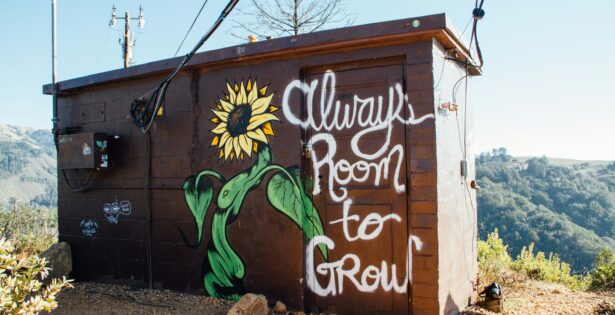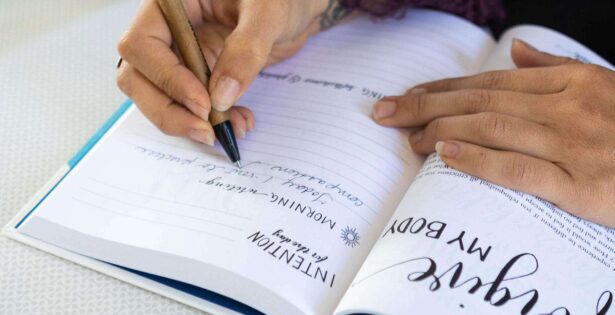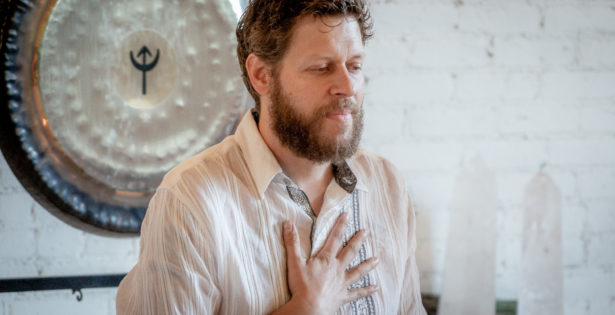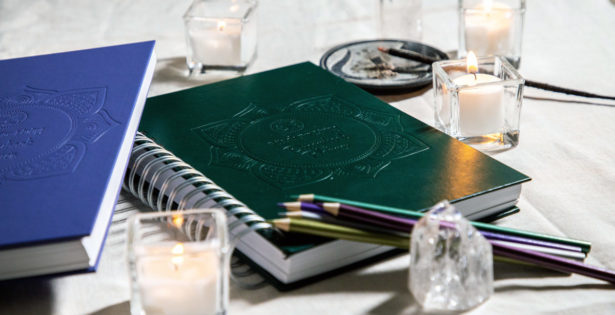WP_Query Object
(
[query] => Array
(
[category__in] => Array
(
[0] => 1
)
[post__not_in] => Array
(
[0] => 7858
)
[posts_per_page] => 50
[ignore_sticky_posts] => 1
[orderby] => desc
[_shuffle_and_pick] => 3
)
[query_vars] => Array
(
[category__in] => Array
(
[0] => 1
)
[post__not_in] => Array
(
[0] => 7858
)
[posts_per_page] => 50
[ignore_sticky_posts] => 1
[orderby] => desc
[_shuffle_and_pick] => 3
[error] =>
[m] =>
[p] => 0
[post_parent] =>
[subpost] =>
[subpost_id] =>
[attachment] =>
[attachment_id] => 0
[name] =>
[pagename] =>
[page_id] => 0
[second] =>
[minute] =>
[hour] =>
[day] => 0
[monthnum] => 0
[year] => 0
[w] => 0
[category_name] => uncategorized
[tag] =>
[cat] => 1
[tag_id] =>
[author] =>
[author_name] =>
[feed] =>
[tb] =>
[paged] => 0
[meta_key] =>
[meta_value] =>
[preview] =>
[s] =>
[sentence] =>
[title] =>
[fields] =>
[menu_order] =>
[embed] =>
[category__not_in] => Array
(
)
[category__and] => Array
(
)
[post__in] => Array
(
)
[post_name__in] => Array
(
)
[tag__in] => Array
(
)
[tag__not_in] => Array
(
)
[tag__and] => Array
(
)
[tag_slug__in] => Array
(
)
[tag_slug__and] => Array
(
)
[post_parent__in] => Array
(
)
[post_parent__not_in] => Array
(
)
[author__in] => Array
(
)
[author__not_in] => Array
(
)
[search_columns] => Array
(
)
[suppress_filters] =>
[cache_results] => 1
[update_post_term_cache] => 1
[update_menu_item_cache] =>
[lazy_load_term_meta] => 1
[update_post_meta_cache] => 1
[post_type] =>
[nopaging] =>
[comments_per_page] => 50
[no_found_rows] =>
[order] => DESC
)
[tax_query] => WP_Tax_Query Object
(
[queries] => Array
(
[0] => Array
(
[taxonomy] => category
[terms] => Array
(
[0] => 1
)
[field] => term_id
[operator] => IN
[include_children] =>
)
)
[relation] => AND
[table_aliases:protected] => Array
(
[0] => wp_term_relationships
)
[queried_terms] => Array
(
[category] => Array
(
[terms] => Array
(
[0] => 1
)
[field] => term_id
)
)
[primary_table] => wp_posts
[primary_id_column] => ID
)
[meta_query] => WP_Meta_Query Object
(
[queries] => Array
(
)
[relation] =>
[meta_table] =>
[meta_id_column] =>
[primary_table] =>
[primary_id_column] =>
[table_aliases:protected] => Array
(
)
[clauses:protected] => Array
(
)
[has_or_relation:protected] =>
)
[date_query] =>
[request] =>
SELECT SQL_CALC_FOUND_ROWS wp_posts.ID
FROM wp_posts LEFT JOIN wp_term_relationships ON (wp_posts.ID = wp_term_relationships.object_id)
WHERE 1=1 AND wp_posts.ID NOT IN (7858) AND (
wp_term_relationships.term_taxonomy_id IN (1)
) AND ((wp_posts.post_type = 'post' AND (wp_posts.post_status = 'publish' OR wp_posts.post_status = 'acf-disabled')))
AND ID NOT IN
(SELECT `post_id` FROM wp_postmeta
WHERE `meta_key` = '_pilotpress_level'
AND `meta_value` IN ('','employee')
AND `post_id` NOT IN
(SELECT `post_id` FROM wp_postmeta
WHERE `meta_key` = '_pilotpress_level'
AND `meta_value` IN ('' )))
GROUP BY wp_posts.ID
ORDER BY wp_posts.post_date DESC
LIMIT 0, 50
[posts] => Array
(
[0] => WP_Post Object
(
[ID] => 5960
[post_author] => 5
[post_date] => 2015-11-24 20:15:26
[post_date_gmt] => 2015-11-24 20:15:26
[post_content] =>
As we approach the American Thanksgiving holiday, for the first time ever we have to use the term “American Thanksgiving.” We always have so much to be thankful for, but this year it’s a little different because we’ve made big strides in expanding how we perform our mission in the world.
For most of our existence, The Dragontree has been followed by the words “Holistic Day Spa.” But, beginning a few years ago, we became more than a spa when we launched our natural and therapeutic product line. In the past year, we started an online course in nutrition, we launched our whole-health magazine called WELL, and we published our Dreambook – resources to more effectively help you become your most vibrant, centered, and peaceful self. Our redesigned website just went live, which will make it easier for you to explore all the wonderful things we offer.
While we continue to devote ourselves to ensuring exceptional healing experiences for the patrons of our spas, our new offerings enable us to help clients in more diverse ways and to reach an audience far beyond our beloved cities of Portland and Boulder. We have emerging relationships with people in dozens of countries around the world, and we are delighted and honored to be able to make a difference in your lives.
We have the deepest gratitude for being able to dedicate ourselves to this work, and to be able to witness the healing and accomplishments of those who have crossed our paths.
Thank you.
Briana and Dr. Peter Borten
[post_title] => Your Most Vibrant, Centered, and Grateful Self
[post_excerpt] =>
[post_status] => publish
[comment_status] => open
[ping_status] => open
[post_password] =>
[post_name] => your-most-vibrant-centered-and-grateful-self
[to_ping] =>
[pinged] =>
[post_modified] => 2015-11-24 20:15:26
[post_modified_gmt] => 2015-11-24 20:15:26
[post_content_filtered] =>
[post_parent] => 0
[guid] => http://www.thedragontree.com/?p=5960
[menu_order] => 0
[post_type] => post
[post_mime_type] =>
[comment_count] => 0
[filter] => raw
[webinar_id] => 0
)
[1] => WP_Post Object
(
[ID] => 9282
[post_author] => 489
[post_date] => 2024-03-18 14:46:21
[post_date_gmt] => 2024-03-18 14:46:21
[post_content] =>
Happy (almost) spring equinox! At the halfway point between the solstices, the equinox is a time of balance between day and night, hot and cold, and yin and yang. It’s a good time to tune in to your current state of balance (or lack thereof).
Take stock. Balance doesn’t imply that everything is equal, just that there is a state of relative harmony between opposing forces. If you have a couple minutes I encourage you to read the following questions as an assessment of personal balance. Take a pause after reading each question to let it sink in.
- How is your balance of movement and stillness? (Sitting vs moving; thinking vs quiet mind; sleep time vs awake time, etc.)
- How is your balance of work and leisure?
- How is your balance of community and solitude?
- How is your balance of communicating versus listening?
- How is your balance of doing versus being?
- How is your balance of holding on and letting go?
- How is your balance of connecting with your inner world versus the outer world?
- How is your balance of creating versus receiving?
- How is your balance of filling yourself up versus emptying yourself out?
- How is your balance of engagement with technology versus engagement with nature?
- How is your balance of preparing for the future versus being in the present?
- How is your balance of consumption of resources versus giving back?
- How is your balance of being mind-centered versus heart-centered?
While this isn’t a totally comprehensive list, I hope it provoked some insight. If you’re human, I’m sure you noticed certain areas where you’re out of balance. I encourage you to think of balance as a dynamic thing – just like the balance between night and day and all the natural forces. Don’t strive for perfection.
Consider taking a card and writing down a few of the activities / orientations from above that are lacking in your life. Then try to remember, throughout your day, to bring your attention to something on your list. At the end of the day or week, reflect on how adding in small doses of balancing qualities is affecting your overall sense of well-being.
By the way, if you like this sort of thing – exploring and growing – have you ever thought about being a life coach? Click here to check out our life coach training program. It’s based on deep, meaningful principles like what I shared here!
Be well,
Dr. Peter Borten
P.S. If you’d like to take a deeper dive into your inner balance, “clean house” internally, shed patterns that aren’t working for you, and open into your highest self, check out our upcoming program Sacred Expansion. Click here for more info.
[post_title] => Bring yourself into balance now
[post_excerpt] =>
[post_status] => publish
[comment_status] => open
[ping_status] => open
[post_password] =>
[post_name] => bring-yourself-into-balance-now
[to_ping] =>
[pinged] =>
[post_modified] => 2024-03-18 14:46:21
[post_modified_gmt] => 2024-03-18 14:46:21
[post_content_filtered] =>
[post_parent] => 0
[guid] => https://thedragontree.com/?p=9282
[menu_order] => 0
[post_type] => post
[post_mime_type] =>
[comment_count] => 0
[filter] => raw
[webinar_id] => 0
)
[2] => WP_Post Object
(
[ID] => 2758
[post_author] => 2
[post_date] => 2013-05-26 15:02:23
[post_date_gmt] => 2013-05-26 15:02:23
[post_content] =>
Calendula is one of the most astringent herbs for the skin, despite it being low in tannins. This makes it gentle, yet extremely effective to combat skin ailments, from minor scrapes and cuts, to rashes, burns, and chapped, dry, cracked and irritated skin. Calendula officinalis, also known as pot marigold (despite it not being part of the marigold family), is the most commonly used type of calendula in topical applications. It grows easily in sunny locations, and is widely considered by gardening aficionados to be one of the easiest and most versatile varieties of flower to grow, since they tolerate most soils. The florets from the calendula plant are edible, and are often added to spring salads to add a touch of warm color and a slightly spicy aroma and flavor.
When mixed with Lavender essential oil, the combination is a rapid skin healer, and has commonly been used by herbalists for centuries as a poultice applied to burns immediately after the initial injury. Nowadays, things like salves and creams made from calendula, for topical application, are a staple in most herbal first-aid kits and medicine cabinets, and are a go-to for skin irritations such as paper cuts, kitchen burns, chapped lips, and diaper rash. Calendula succus, which is made by extracting the fresh juice from the leaves and young flowers and preserving it with alcohol, is popular among naturopathic physicians, who use it during minor surgical procedures to help heal the incision, and topically on skin wounds and infections. A tea made from the leaves and flowers can be used as a mouthwash to combat gum inflammation and tooth infections, and as a gargle for sore throats and tonsillitis.
As you can see, calendula can be very versatile, and along with Lavender, represents one of the top herbs to keep on-hand for use at home. Organic calendula is one of the top ingredients in our Muscle Melt linament, to help soothe skin and keep it from getting irritated by the strong vasodilators, such as Arnica Montana and Pippali Indian Long Pepper, which give Muscle Melt that cool-but-warm-at-the-same-time sensation that we all love. Calendula is also added into all of our Dragontree apothecary brand lotions, giving them amazing healing, soothing, and skin-calming properties."
-Michele C. (Lead LMT at The Dragontree PDX)
[post_title] => Calendula Officinalis
[post_excerpt] =>
[post_status] => publish
[comment_status] => open
[ping_status] => open
[post_password] =>
[post_name] => calendula-officinalis
[to_ping] =>
[pinged] =>
[post_modified] => 2013-05-26 15:02:23
[post_modified_gmt] => 2013-05-26 15:02:23
[post_content_filtered] =>
[post_parent] => 0
[guid] => http://www.thedragontree.com/?p=2758
[menu_order] => 0
[post_type] => post
[post_mime_type] =>
[comment_count] => 0
[filter] => raw
[webinar_id] => 0
)
)
[post_count] => 3
[current_post] => -1
[before_loop] => 1
[in_the_loop] =>
[post] => WP_Post Object
(
[ID] => 5960
[post_author] => 5
[post_date] => 2015-11-24 20:15:26
[post_date_gmt] => 2015-11-24 20:15:26
[post_content] =>
As we approach the American Thanksgiving holiday, for the first time ever we have to use the term “American Thanksgiving.” We always have so much to be thankful for, but this year it’s a little different because we’ve made big strides in expanding how we perform our mission in the world.
For most of our existence, The Dragontree has been followed by the words “Holistic Day Spa.” But, beginning a few years ago, we became more than a spa when we launched our natural and therapeutic product line. In the past year, we started an online course in nutrition, we launched our whole-health magazine called WELL, and we published our Dreambook – resources to more effectively help you become your most vibrant, centered, and peaceful self. Our redesigned website just went live, which will make it easier for you to explore all the wonderful things we offer.
While we continue to devote ourselves to ensuring exceptional healing experiences for the patrons of our spas, our new offerings enable us to help clients in more diverse ways and to reach an audience far beyond our beloved cities of Portland and Boulder. We have emerging relationships with people in dozens of countries around the world, and we are delighted and honored to be able to make a difference in your lives.
We have the deepest gratitude for being able to dedicate ourselves to this work, and to be able to witness the healing and accomplishments of those who have crossed our paths.
Thank you.
Briana and Dr. Peter Borten
[post_title] => Your Most Vibrant, Centered, and Grateful Self
[post_excerpt] =>
[post_status] => publish
[comment_status] => open
[ping_status] => open
[post_password] =>
[post_name] => your-most-vibrant-centered-and-grateful-self
[to_ping] =>
[pinged] =>
[post_modified] => 2015-11-24 20:15:26
[post_modified_gmt] => 2015-11-24 20:15:26
[post_content_filtered] =>
[post_parent] => 0
[guid] => http://www.thedragontree.com/?p=5960
[menu_order] => 0
[post_type] => post
[post_mime_type] =>
[comment_count] => 0
[filter] => raw
[webinar_id] => 0
)
[comment_count] => 0
[current_comment] => -1
[found_posts] => 233
[max_num_pages] => 5
[max_num_comment_pages] => 0
[is_single] =>
[is_preview] =>
[is_page] =>
[is_archive] => 1
[is_date] =>
[is_year] =>
[is_month] =>
[is_day] =>
[is_time] =>
[is_author] =>
[is_category] => 1
[is_tag] =>
[is_tax] =>
[is_search] =>
[is_feed] =>
[is_comment_feed] =>
[is_trackback] =>
[is_home] =>
[is_privacy_policy] =>
[is_404] =>
[is_embed] =>
[is_paged] =>
[is_admin] =>
[is_attachment] =>
[is_singular] =>
[is_robots] =>
[is_favicon] =>
[is_posts_page] =>
[is_post_type_archive] =>
[query_vars_hash:WP_Query:private] => b5667ee454b85c99c92b286745187281
[query_vars_changed:WP_Query:private] =>
[thumbnails_cached] =>
[allow_query_attachment_by_filename:protected] =>
[stopwords:WP_Query:private] =>
[compat_fields:WP_Query:private] => Array
(
[0] => query_vars_hash
[1] => query_vars_changed
)
[compat_methods:WP_Query:private] => Array
(
[0] => init_query_flags
[1] => parse_tax_query
)
)



 Cart
Cart














